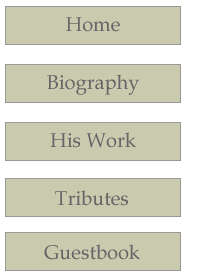
![]()

Remarks at Accuracy In Academia
20th Anniversary Dinner
Washington, D.C., Friday, July 22, 2005
Delivered by
by Leslie Carbone,
Former AIA Executive Director
Thank you, Michael [Graham, WMAL talk-show host] .
It is great to be here to celebrate the 20 th anniversary of Accuracy In Academia and to cap off your conference on “Opening Gates and Tearing Down Walls”.
I thought that was a great theme for this conference—because it recalls perhaps the most politically incorrect moment in recent history.
When Ronald Reagan stood before the Brandenburg Gate and demanded, “Mr. Gorbachev, tear down this wall!”, he wasn't just defying the Soviets. He was defying the politically correct thought police of his own administration who tried to keep the line out of his speech.
According to Peter Robinson, the writer of that famed speech, one senior official objected that the line would be “an affront to Mr. Gorbachev”. Another said that the speech was “naïve”, “clumsy”, and “needlessly provocative” and “would raise false hopes”.
Even on the morning of the speech, the lily-livered placaters were still trying to silence the President's message. But in the limo on the way to the wall, Reagan just smiled and said, “The boys at State are going to kill me, but it's the right thing to do.”
It was the right thing to do, and it didn't raise false hopes. It restored true hope to half a nation and half the world.
Peter Robinson, the speechwriter, recalls later meeting a German woman who told him, “When I heard Mr. Reagan say, ‘Mr. Gorbachev, tear down this wall,' I thought to myself, ‘What a strange idea!' I only knew the world with the wall.”
She only knew the world with the wall—until Ronald Reagan imagined for her a world without it.
It's appropriate that Accuracy In Academia was founded by Reed Irvine during Reagan's presidency. Accuracy In Academia stands for the same things that Reagan did—truth, freedom, hope.
When classroom professors distort the truth, Accuracy In Academia is there to reveal it. When campus administrators squelch free thought and free speech, Accuracy In Academia is there to defend them. And when it seems that universities have degenerated into stifling deserts where only one stream of thought, pointing to one conclusion, is allowed, Accuracy In Academia is there to provide an oasis of hope.
The importance of Accuracy In Academia was driven home to me in a highly personal way this morning before I boarded a plan. I was selected for a random groping by a female Transportation Security Administration employee. Now, I don't know what they thought I was hiding in this dress. But that's just the point. They weren't thinking. As the male agent watching this experience explained to me, I was selected for no reason. Random searches prevent profiling, he told me, with great moral pride.
So homeland security takes a back seat to the demands of political correctness.
But there's a deeper problem. And that problem is that homeland security takes a back seat to the demands of not thinking.
The attacks of September 11 were not the result of a failure to search American women who couldn't possibly take over a plane.
They were the result of a failure of intelligence and what was later appropriately termed a failure of imagination.
And those are the things that are under assault in American universities today.
That's why I'm so grateful that Accuracy In Academia was founded 20 years ago, and I hope you are too.
And that's why this conference is so important. Over the last couple of days, the students here have heard the facts that refute politically correct claims. You've enjoyed an atmosphere where free thought and free expression are valued, not feared. And you've met others who are facing and fighting the same battles that you are. I trust that has given you a sense of support and encouragement. I trust that during these two days, you have felt the warm tingle of hope stirring in your hearts. And I commend you for being here to take advantage all that Accuracy In Academia is offering you. I know that it isn't easy to give up two days during the summer to come to a conference. I know that there are more tempting ways to escape the stifling atmosphere of a college campus than by fleeing to the stifling atmosphere of Washington in the summertime. But when I was executive director of Accuracy In Academia, our annual conference was one of the highlights of my year. I hope the same is true for you.
I began this talk with a story about Ronald Reagan—a great man whom the world lost last year.
The world lost another great man last year. And that man was Reed Irvine. Twenty years ago, when Mr. Irvine was chairman of Accuracy In Media, he saw clearly that one reason for the pervasive liberal bias in the news media was the pervasive liberal bias in academia. Most reporters went to college, after all. So he founded Accuracy In Academia to treat the problem at its source. And he gave me the best job I've ever had. Leading Accuracy In Academia gave me the opportunity to fight for some of the things that matter most—truth, freedom, hope. I wouldn't have missed it for the world.
That's why it's such a great pleasure to be with you tonight to celebrate Accuracy In Academia's 20 th anniversary. Thank you all for being here. Thank you, Debby [Lambert] , for the invitation to be here. Thank you, Don [ Irvine ] , for taking over as chairman. Thank you, Mal [Kline], Dan [Flynn] , and Pete [LaBarbera] , for continuing the good work after I moved on. And thank you, Reed.